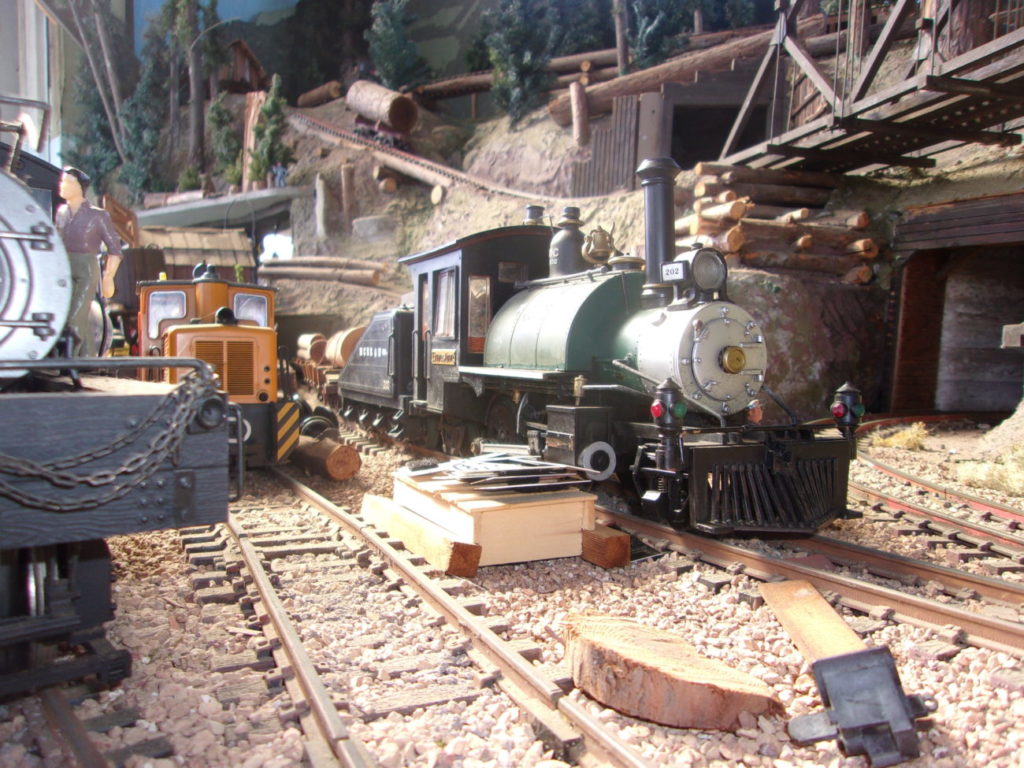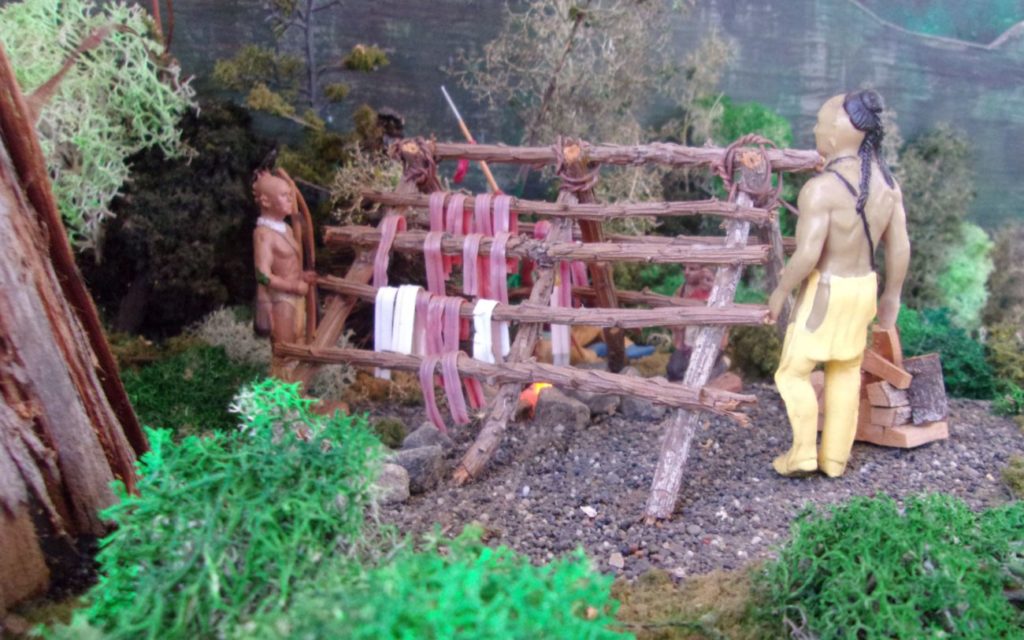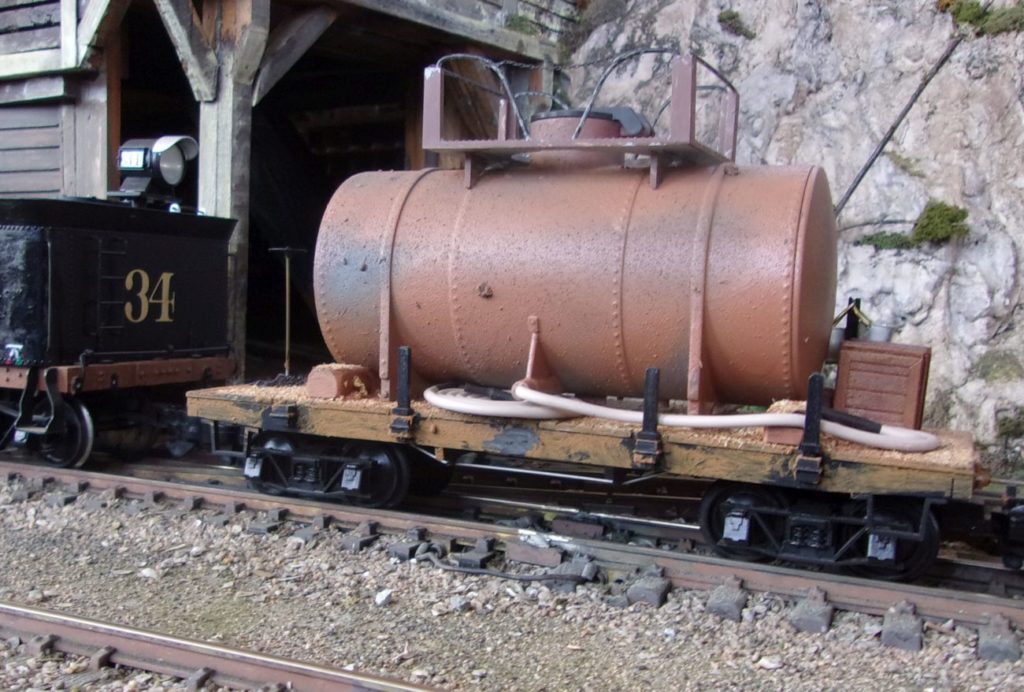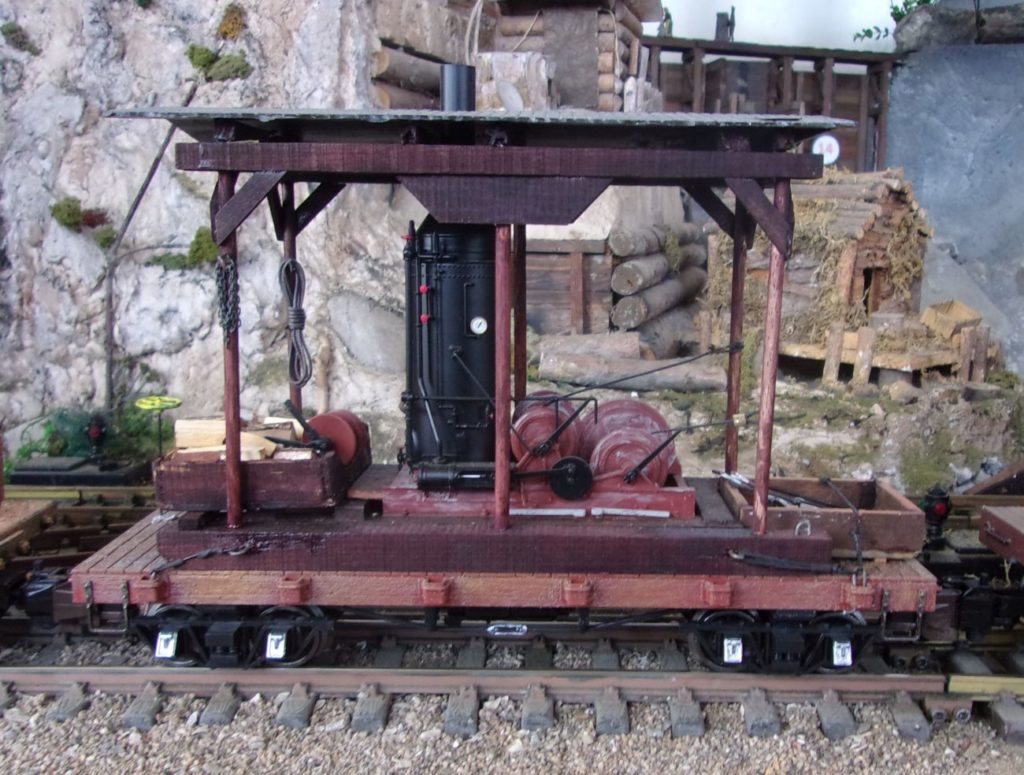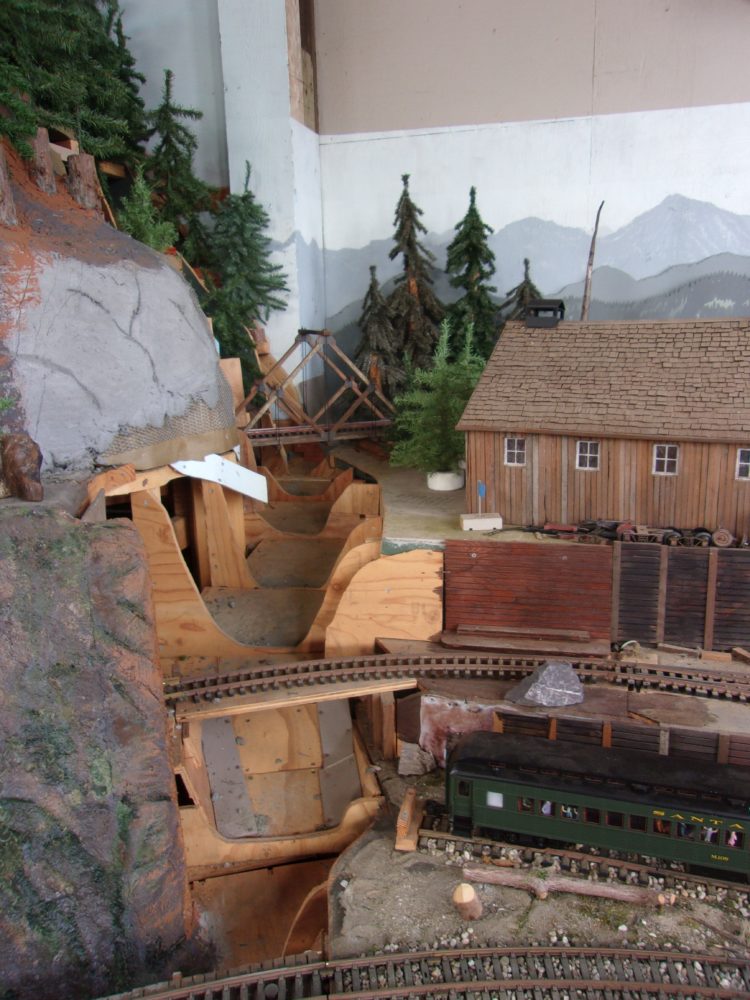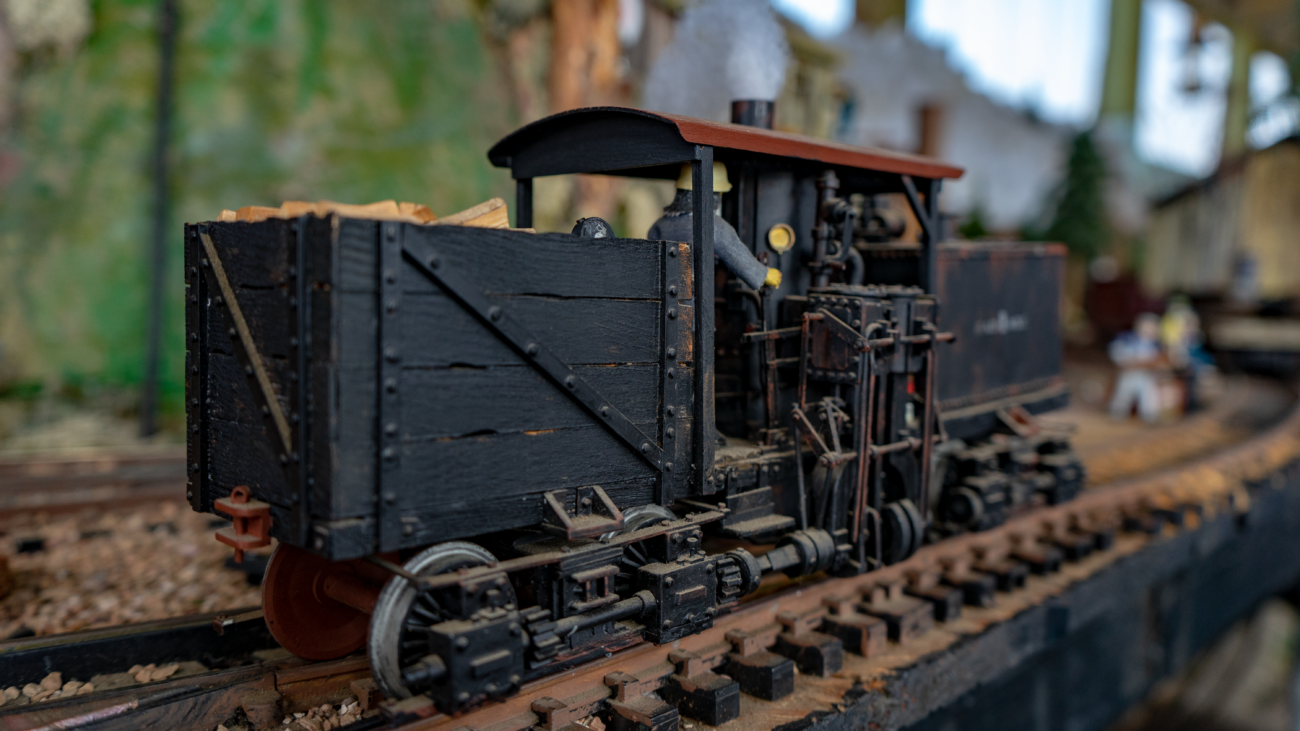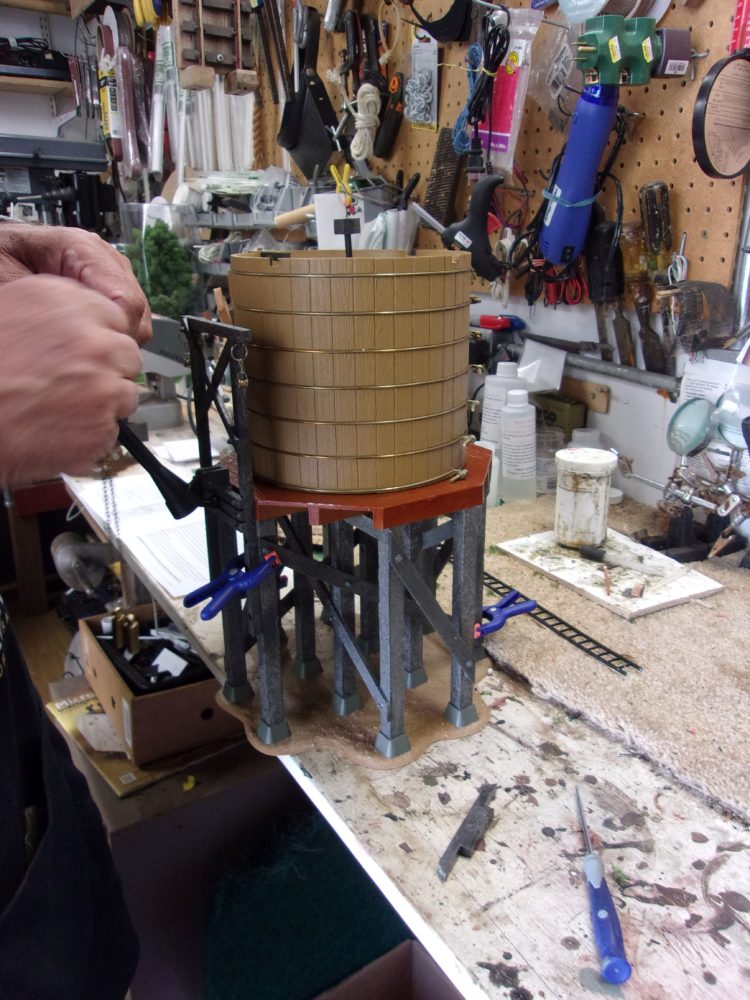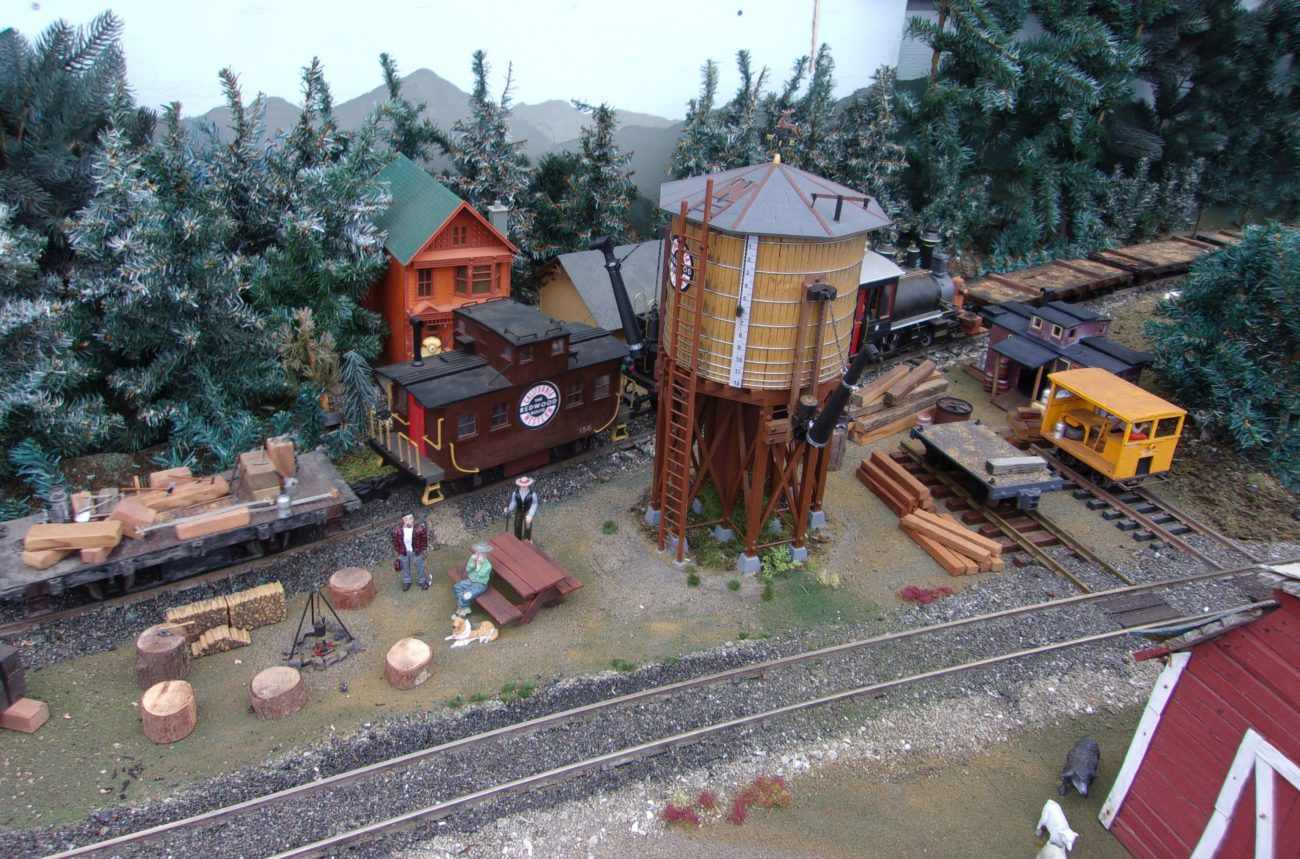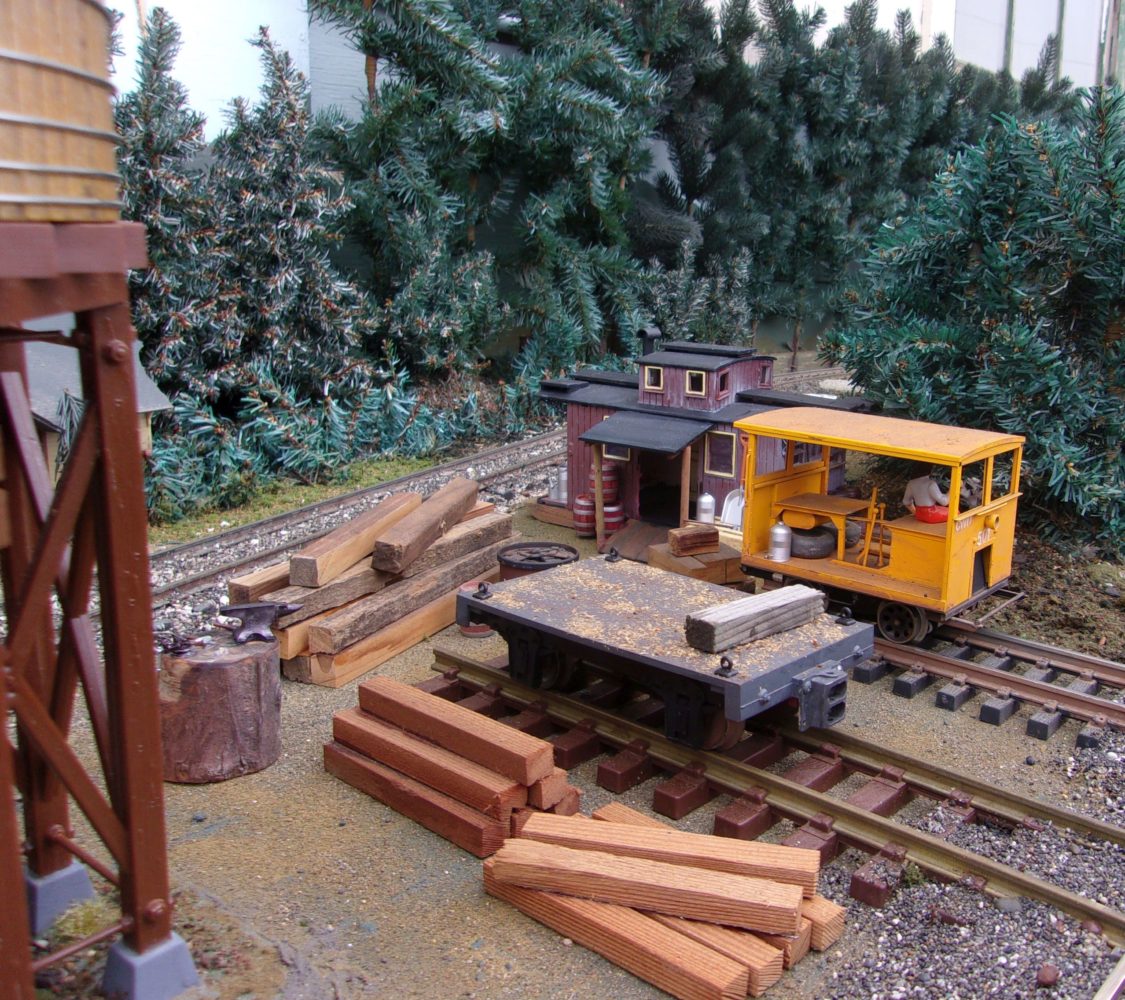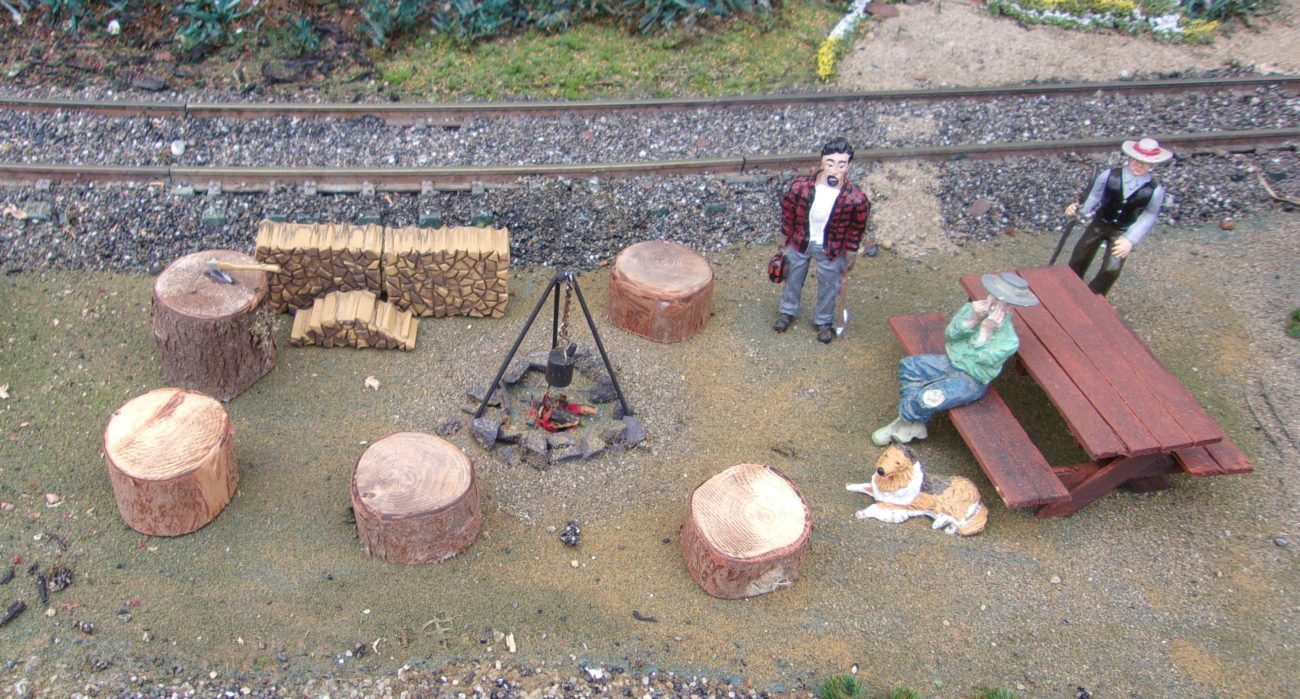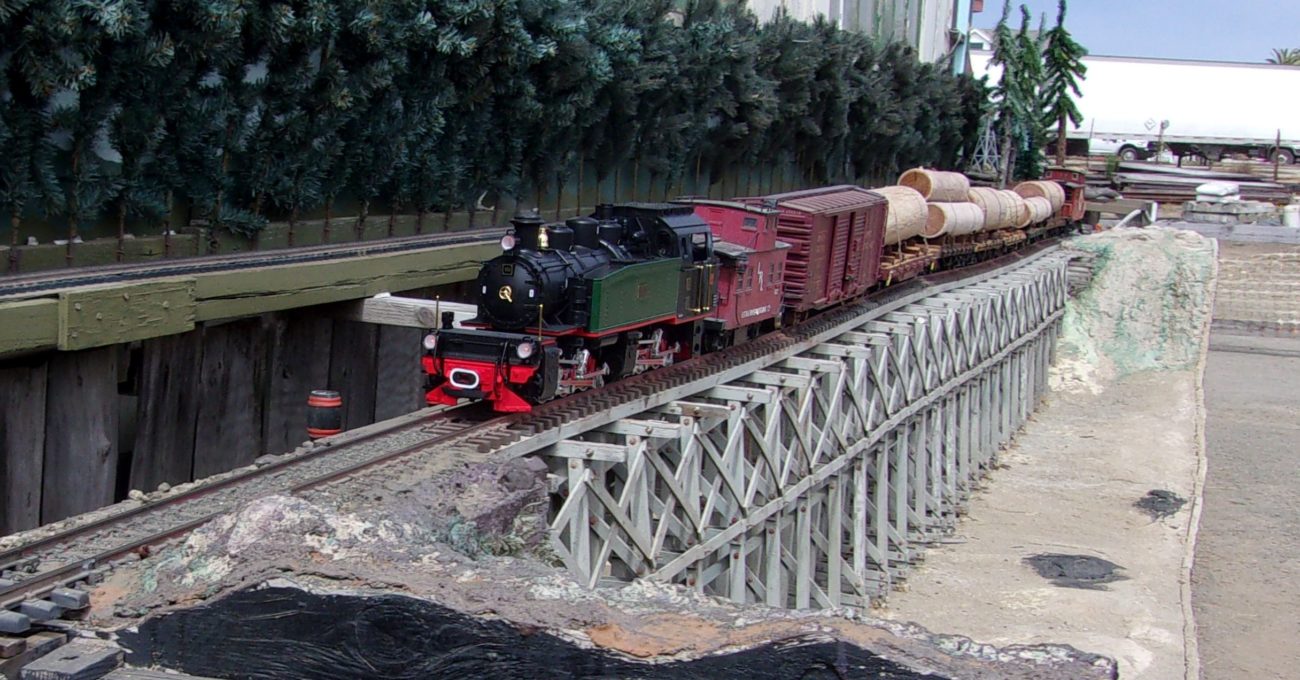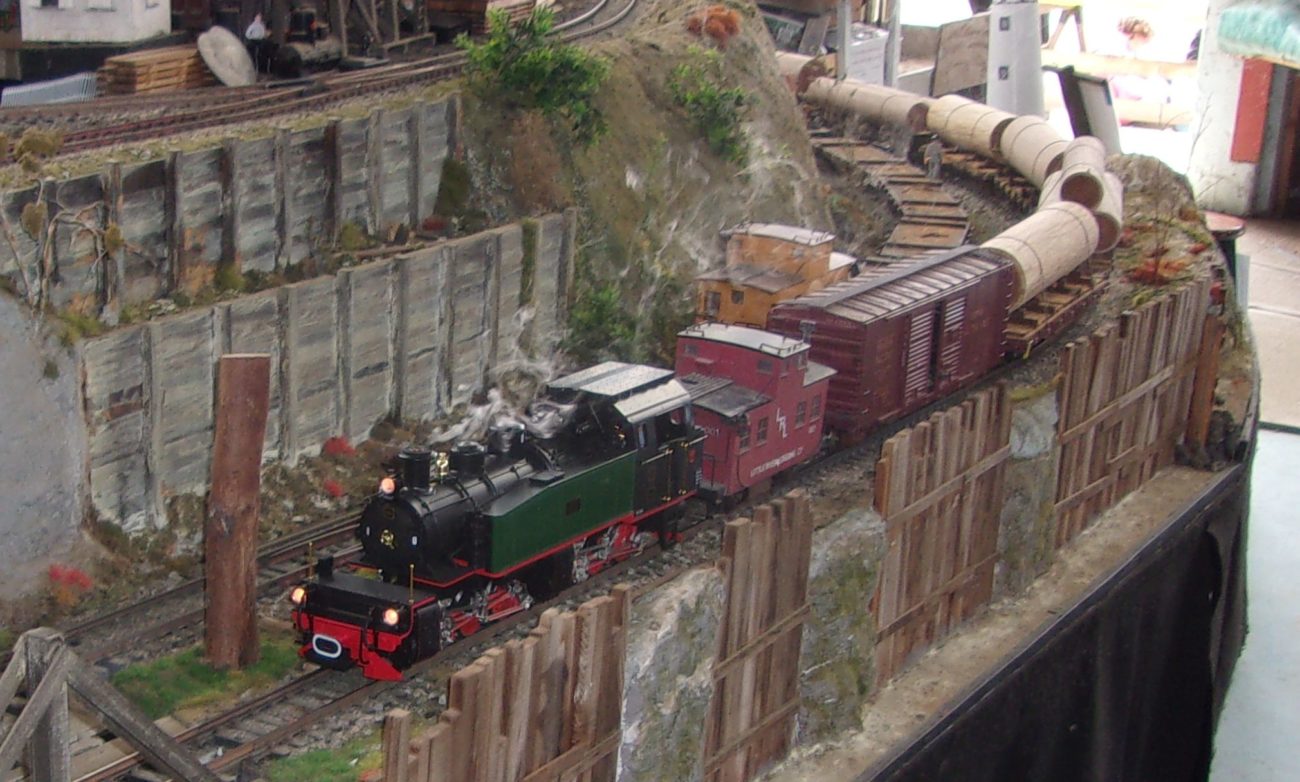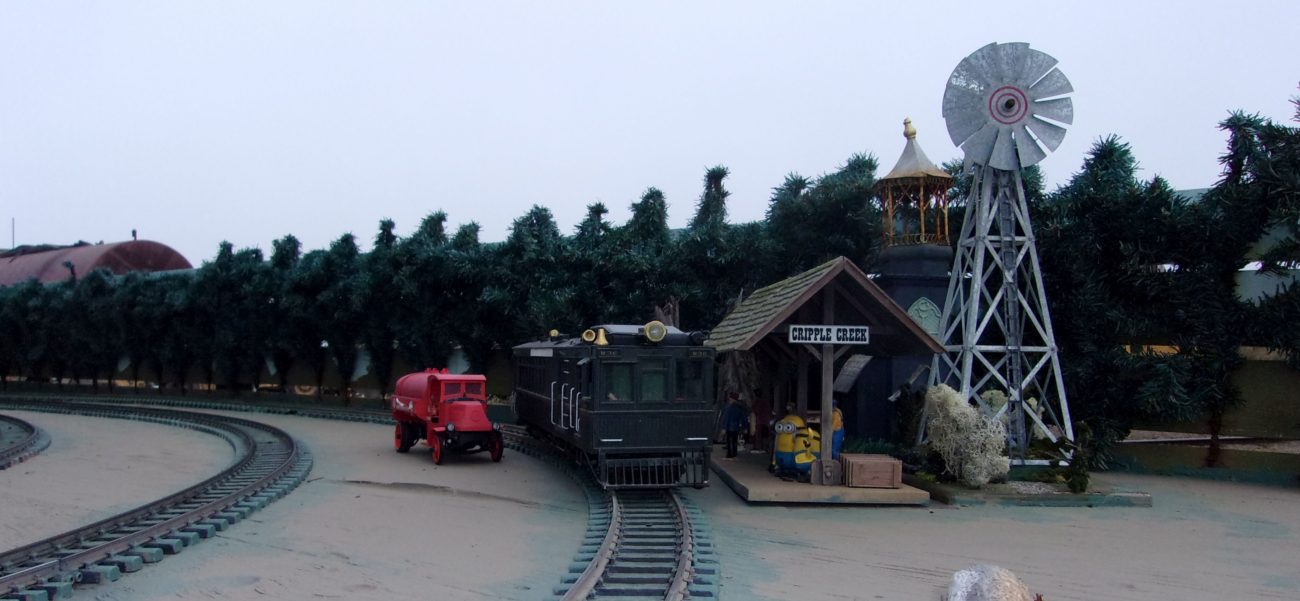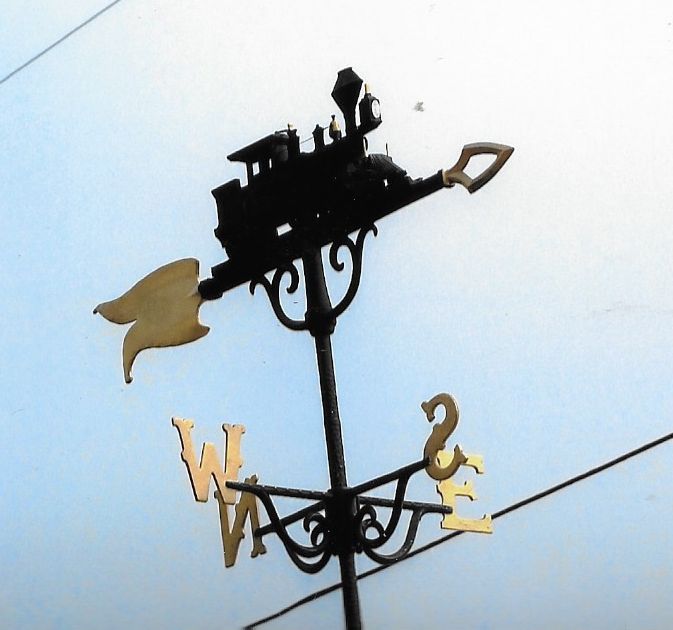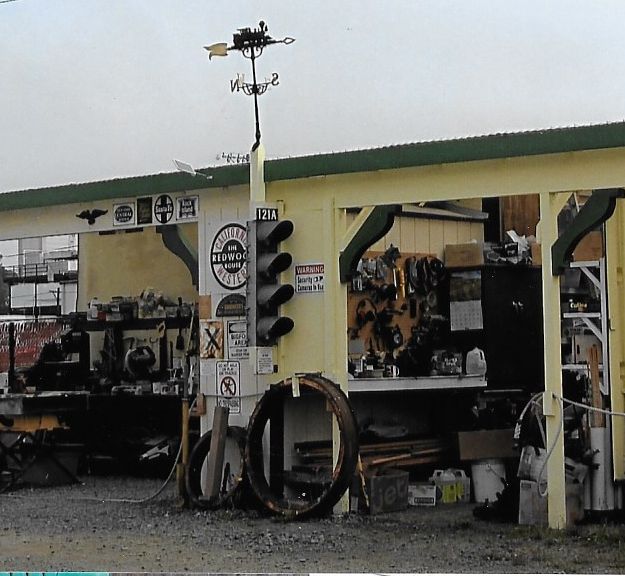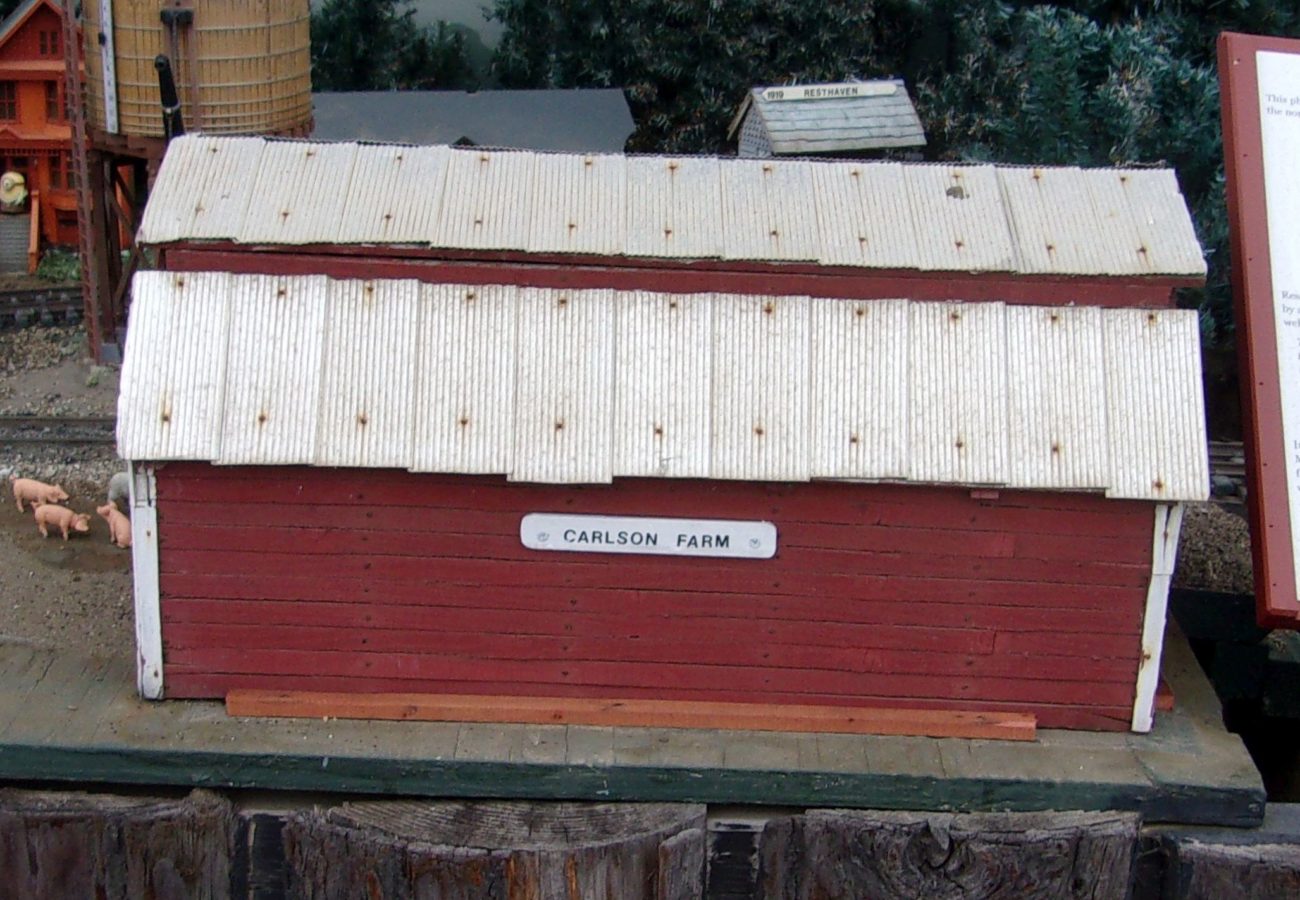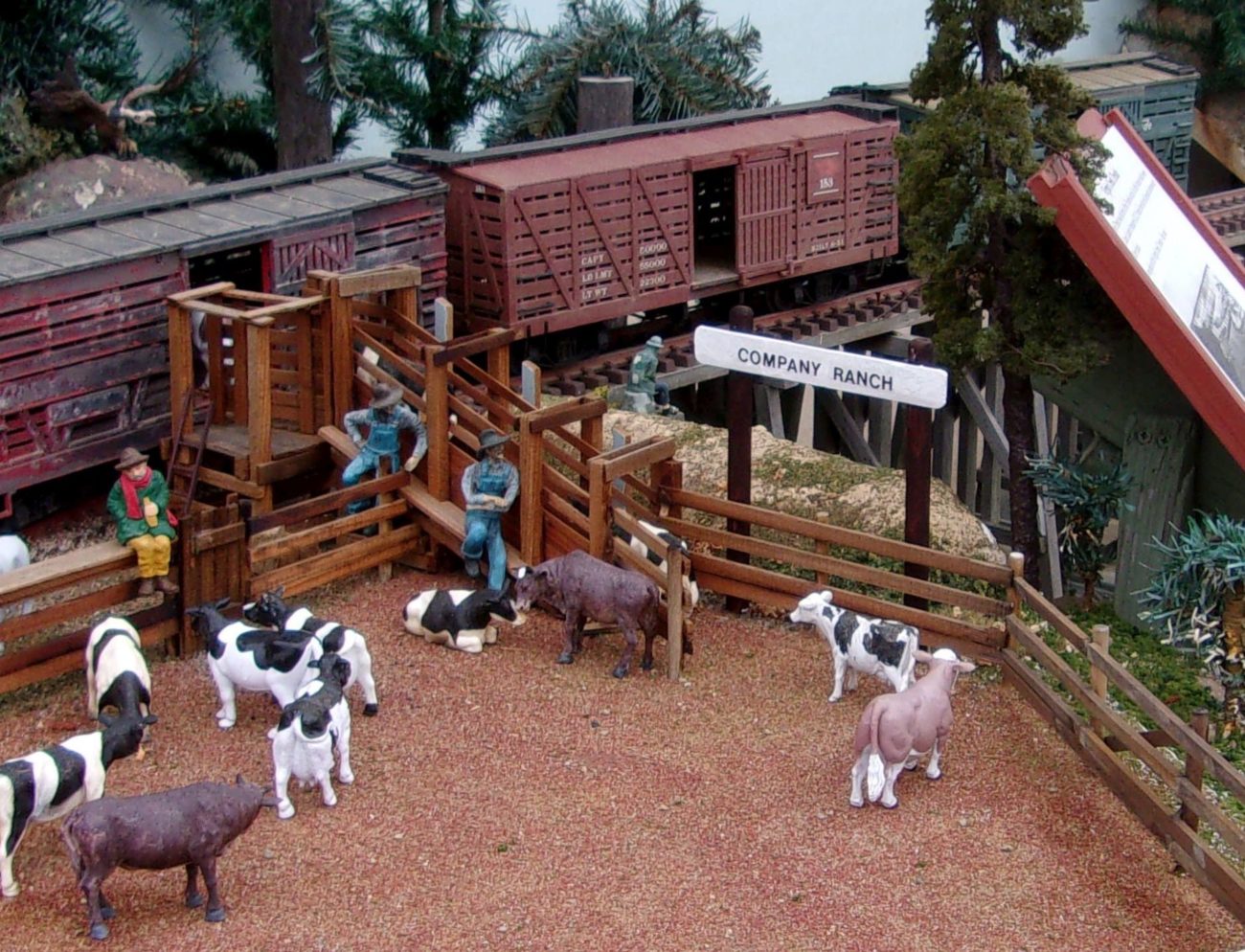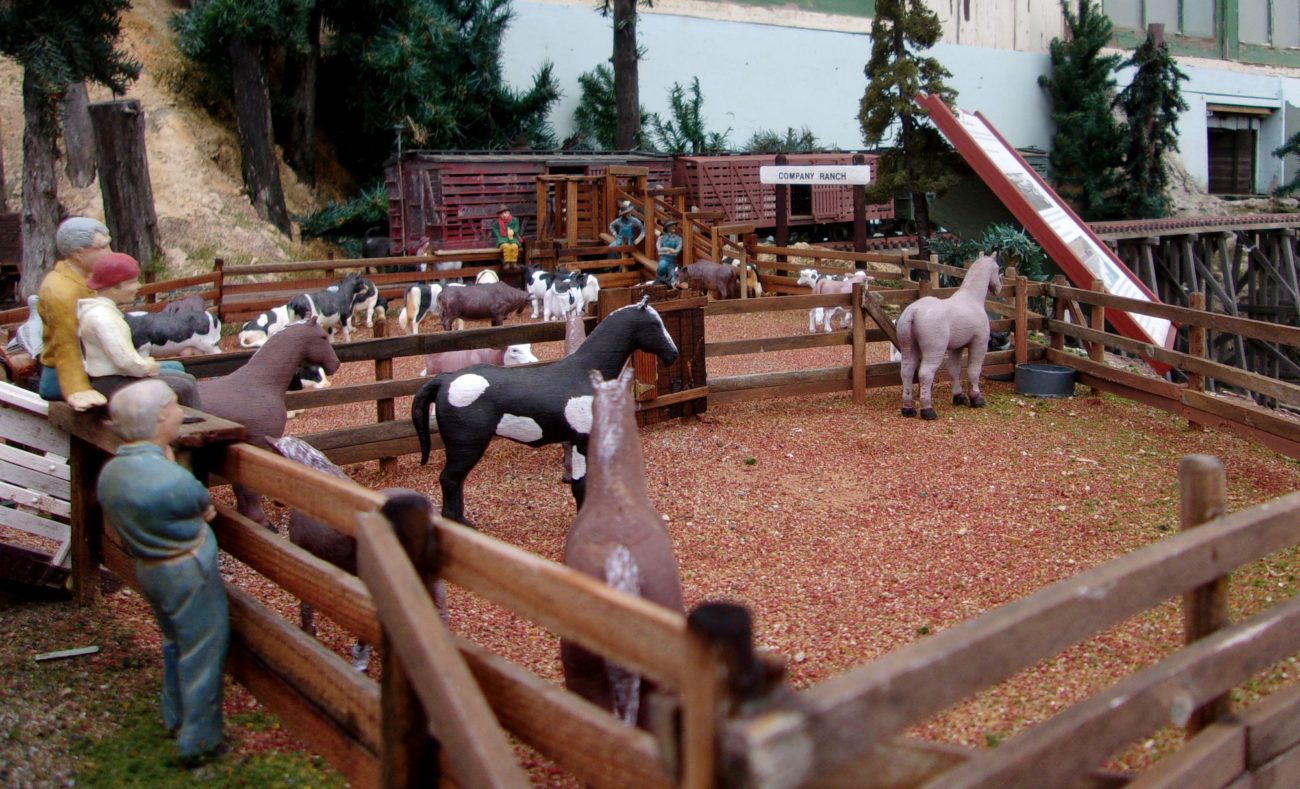The bottom of the incline is a busy place. Ernestine (a Rogers loco) is waiting to leave. Ernestine is on of the oldest locos that the club (The Mendocino Model Railroad & Navigation Co.) owns. She is a stellar performer and was named after Basil Casabona’s mother. The parked diesel is actually an articulated track cleaner. Alas, the incline has not, as yet, been automated – work for another day.
Author Archives: Tony Phillips
Pomo Native Americans Salmon
Before the arrival of the white man on the Mendocino Coast there were buckets of salmon. Early settlers recalled catching them by hand as they went upriver. The salmon provided food to the Pomo Native Americans. In addition to eating it fresh they smoked it in order to keep it. As part of our diorama of the wreck of the Frolic we have a mini diorama of the Pomo smoking salmon. The diorama is very realistic as it looks as if the fire doing the smoking is alight. Daughter Annalise took this picture ……..
MOW (Maintenance of Way) Consist
Chief Operating Officer Frank Davis has put together a MOW (Maintenance of Way) Consist. The consist features two new(ish) items – a tank car and a steam donkey with a canopy. Both these were kitbashed by our President – Chuck Whitlock. Click on the photos to enlarge them.
Santa Cruz Smith’s A-Frame Bridge Installed on River Noyo on the North Inside of the MCMR&HS G Scale Layout
Once there were 115 bridges on the 34 mile-long California Western’s Skunk Line from Fort Bragg to Willits. Only 30 remain today – and they all have been “modernized”. Of the 115 original bridges it is believed that 37 of them were A-Frame type. Most of the 37 were built from the 1890’s to 1911 to cross the rivers on the route. The redwood timber for construction of the A-Frame bridge was abundant and handy. The design distributes the weight of the bridge onto supports/pilings at the side of the river. No supports were driven directly into the river below since they could be ripped out by surging water and debris (including uprooted trees) caused by heavy rains. Alas, these wooden bridges became prime targets for arsonists and that, apart from straightening the line, accounts for their replacement.
Santa Cruz Frank is our “main man” for building bridges and portals. The first pic shows the “real thing.” The second and third pics are of Santa Cruz Franks’s model.
As others see us – Pictures from Stefan Niklas Zeitvogel
I really enjoyed visiting with the Zeitvogel family who recently visited our layout when on holidays from Germany. Just from watching it was clear that Stefan Niklas Zeitvogel was an excellent photographer. So, I asked if they would be kind enough to send a selection of the photos that Stefan took so that I could post them on this blog. Well, here’s the e-mail I received today:
“Dear Tony,
We met when we were visiting your wonderful model train exhibition ( Roger, me and my son Stefan Niklas who loved to take photos of the trains ) .
As promised we have selected a few ones attached above and hope you will like them.
We enjoyed the skunk train and the model train world very much.
All best wishes from Lake Constance in Germany,
Patricia, Roger and Stefan Niklas.”
As you will see below Stefan’s photos are superb. Click on any photo to see full size.
Stefan, thanks for visiting and sharing your photos.
Trackside camp opposite the Carlson Farm
This dioama on the outside east wall is close to the east portal and opposite the Carlson Farm diorama. The diorama was assembled by President Chuck Whitlock.
LGB 0-6-6-0 enters service on the Mendocino Coast Railroad & Navigation Railroad G Scale layout in Fort Bragg, CA.
The Caspar Lumber Company had two articulated 2-6-6-2 locomotives. They were named Trojan and Samson. California Western Railroad also had a 2-6-6-2. She was known as the “Super Skunk”. We have a 2-6-6-2 but she has had troubles from day one so we have been on the look out for an articulated lokie. To fill the void our club secretary offered the club his very nearly new 0-6-6-0 and yesterday she made her maiden appearance on our layout. She’s a real beauty – see below (click on a photo to see full size) ……..
She doesn’t have a name yet. A name will come when she returns to the layout battery powered.
Cripple Creek – a small stop on the north east outside corner of the layout
This pic is of the mini diorama at the north east outside corner of the layout. It is slated for enhancement in the form of additional trees. This diorama is “famous” with the little people because it has the minions that are most difficult for them to find on the layout.
New (to us) weather vane
A while back club member Jim Williams was given an old weather vane. It was given to him by his mother-in-law. Jim recently brought it into the layout and offered to loan it to the Club. We accepted his offer with alacrity. President Chuck Whitlock took it to his workbench and before you could say, “Jack Robinson” it was cleaned, painted black with gold embellishments! Next in on “the act” was Lonnie Dickson who assisted in building the support for the weather vane and then installing it. And, here it is flying high …..
Hereyou can see it atop the workshop ………
Pretty neat eh?
And, thanks to Jim for the pics,
Signs for Company Ranch and Carlson Farm Dioramas
President Chuck Whitlock has been renovating the Carlson farm diorama on the outside east wall. Most of what he has done are not visible. However, the new sign is there for all to see (Click on the pic to see full size):
The Company ranch diorama I reported on in the previous blog has now been completed with a sign signifying that it is indeed the (ULC’s) Company Ranch
